Hello, Welcome to ICPN2022!

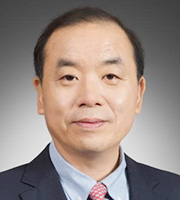 Lian Hongkai, Professor
Lian Hongkai, Professor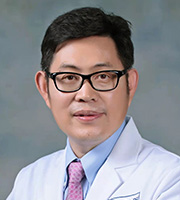 Jian Fengzeng, Professor
Jian Fengzeng, ProfessorResearch Area: Professor Jian specializes in the treatment of cervical spondylosis, lumbar spondylosis, spine and spinal cord tumors, craniocervical junction deformity, etc.
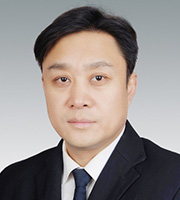 Liu Yong, Professor
Liu Yong, ProfessorProfessor Liu is the CEO of Huihe Medical Group, a consortium of neuro spinal experts in China, also President of Beijing Kirui Sirun Medical Research Institute. He served as director of the Syringomyelia Specialist Center of Yuquan Hospital Affiliated to Tsinghua University. He is consultant specialist and chief expert in many Chinese hospitals in Beijing and Zhengzhou.
Research Area: Professor Liu specialized in the basic and clinical treatment of cerebral and spinal cord diseases in the craniocervical junction area, such as minimally invasive surgery of syringomyelia and Arnold–Chiari.
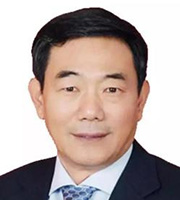 Liu Xianzhi, Professor
Liu Xianzhi, ProfessorProfessor Liu is Director of the Neurosurgery Department of the First Affiliated Hospital of Zhengzhou University. He has been engaged in neurosurgery teaching and research work for more than 30 years. He serves as the editorial board member of many academic journals, including "Chinese Journal of Neurosurgery", "Chinese Journal of Neurological Diseases", "Chinese Journal of Minimally Invasive Neurosurgery", "Journal of Clinical Neurosurgery", etc.
Research Area: Professor Liu has rich experience in the diagnosis and treatment of cerebrovascular diseases and neuro-oncology, including the common and frequently-occurring diseases in neurosurgery, resection of pituitary tumors through single nostril, over-range resection of brain gliomas and the comprehensive treatment.
 Paolo A. Bolognese, Professor
Paolo A. Bolognese, ProfessorProfessor Bolognese is a native of Torino, Italy. He graduated with honors from the University of Turin Medical School in 1986 under the guidance of Professor Victor A. Fasano, an international leading expert in the field of high-tech applications in neurosurgery.
Professor Bolognese is the world’s leading expert in the field of laser Doppler flowmetry applied to neurosurgery and the top European figure in the field of neurosurgical intraoperative ultrasound.
 Marcus Stoodley, Professor
Marcus Stoodley, ProfessorProfessor Marcus Stoodley graduated from the University of Queensland Medical School. He is Master Tutor and serves the director of Neurosurgery at Macquarie University Hospital and Faculty of Medical and Health Sciences. He leads the neurosurgery research team at Macquarie University.
Research Area: Syringomyelia, cerebrospinal fluid physiology. He has developed new treatments for cerebral arteriovenous malformations, brain bypass surgery, and the treatment of moyamoya and occlusive diseases.
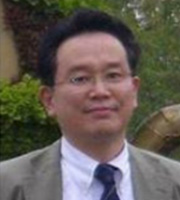 Misao Nishikawa, Professor
Misao Nishikawa, ProfessorDr. Misao Nishikawa graduated from the School of Medicine, Osaka City University with two doctor degrees in Medicine and Physiological pathology. Currently he practices as a doctor in Osaka City General Hospital, Japan.
Research Area: Dr. Misao Nishikawa specializes in the research of cerebellar subtonsillar hernia malformations and related disorders. He created new diagnostic assessments based on the pathophysiology of these disorders.
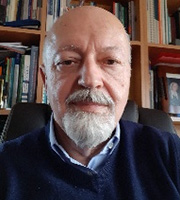 OSMAN SINANOVIĆ, Professor
OSMAN SINANOVIĆ, ProfessorResearch Area: Clinical neuropsychology, non-motor disorders of neurology diseases, stress and psychological trauma, clinical neurophysiology, neuromuscular disorders.
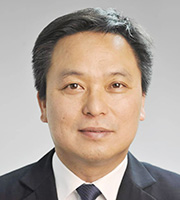 Min Youhui, Professor
Min Youhui, ProfessorDr. Min specializes in the diagnosis and treatment of cerebrovascular diseases. He is an all-round doctor of extraordinary versatility in neurosurgery of type Ⅲ and type Ⅳ, including the microvascular decompression for the treatment of trigeminal neuralgia and hemifacial spasm. He has achieved good results in high-end levels of neurosurgeries, such as giant acoustic neuroma, meningioma, infantile cerebral palsy, directional destruction of Parkinson's disease, epilepsy, and cerebral aneurysm clipping.
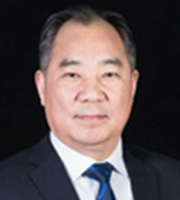 Sun Guoshao, Professor
Sun Guoshao, ProfessorResearch Area: Professor Sun Guoshao specializes in the treatment of cervical spondylosis, vertebral stenosis, disc herniation, spinal fracture with paraplegia, spinal tumor, and tuberculosis.
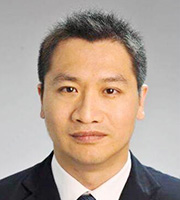 Zhang Hui, Professor
Zhang Hui, ProfessorResearch Area: Professor Zhang specializes in comprehensive treatment for coma awakening, minimally invasive surgery for cerebral hemorrhage, moyamoya disease bypass, diagnosis and treatment of intracranial infection treatment, hydrocephalus, severe craniocerebral injury, and rescue of critically ill patients, neuromodulation treatment of diabetic foot. Professor Zhang has accumulated rich experience in the treatment of Parkinson's disease electrode implantation, epilepsy, endoscopic trigeminal neuralgia and hemifacial spasm.
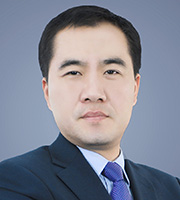 Lou Yongli, Professor
Lou Yongli, ProfessorProfessor Lou presided over 7 research projects, including national level and provincial level. He won the second prize of the Science and Technology Achievement Award of Henan Provincial Department of Education, and the third prize of Henan Medical Science and Technology Award. He has published more than 20 academic papers.
Research Area: Professor Lou is experienced in the basic and clinical research on various types of syringomyelia, tethered cord syndrome, craniocervical junctional malformations, and cerebrospinal fluid dynamics. He is good at all kinds of syringomyelia, Chiari malformation, atlantoaxial (sub)luxation, skull base depression, tethered cord syndrome, congenital spina bifida, meningocele, sacral cyst, (spine) spinal cord tumor, spinal cord Arachnoid adhesions, hydrocephalus, neuropathic pain (integrated, stepwise treatment), congenital structural deformities in children, nerve repair, neuromodulation, diagnosis of spinal cord trauma and degenerative diseases (such as cervical spondylosis, lumbar spondylosis), (minimally invasive surgery) treatment and rehabilitation maintenance.
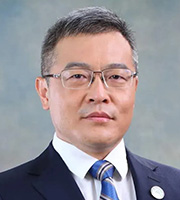 Jia Wenqing, Professor
Jia Wenqing, ProfessorProfessor Jia presided over and participated in a number of projects including the National Natural Science Foundation of China Spinal Cord Injury Major Project, Capital Clinical Feature Application Research, and the Beijing Municipal Medical Administration's Sailing Project. He has published more than 20 papers in SCI-indexed and core journals as the first author and corresponding author.
Research Area: Professor Jia focuses on the research and clinical work of spinal cord and spine. He specializes in the diagnosis and treatment of spinal cord tumors, congenital malformations, spinal degenerative diseases, spinal cord injuries, and other spinal cord diseases.
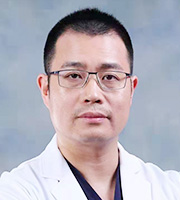 Guan Jian, Professor
Guan Jian, ProfessorDr. Guan presided over a youth project of the National Natural Science Foundation of China as the project leader. He published more than 20 monographs and more than 10 papers in SCI-indexed journals.
Research Area: Dr. Guan specializes in the diagnosis and treatment of spinal cord diseases, especially in the minimally invasive and microsurgical treatment of cervical lumbar spondylosis, spinal cord tumors, syringomyelia, cerebellar subtonsillar hernia, sacral cyst, and tethered cord.
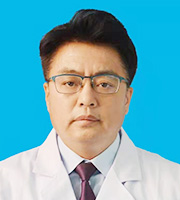 Cui Zhiqiang, Professor
Cui Zhiqiang, ProfessorResearch Area: Dr. Cui specializes in systematic treatment of lumbar disc herniation, minimally invasive treatment of cervical spondylosis; neural tube defects; tumors in the spinal canal, congenital cysts; spinal cord injury, cervical spondylosis, disc herniation, spinal stenosis, spondylolisthesis, scoliosis , spastic torticollis; quadruple minimally invasive surgery for ankylosing spondylitis and spinal cord, microsurgical treatment for congenital diseases, treatment of severe craniocerebral injury, neck, shoulder, and lumbago.
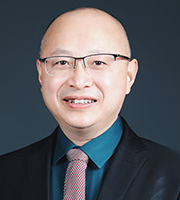 Chen Lin, Professor
Chen Lin, ProfessorReceived tutelage from Professor Liu Zonghui, an important founder of modern stereotaxic functional neurosurgery in China, and a famous expert in the Army Neurosurgery Center of the Navy General Hospital. Received tutelage from Professor Zuo Huancong, a famous neurosurgery expert from Tsinghua University, and Professor Huang Hongyun, the founding chairman of the International Neurorestoration Society (the founder of clinical repair of olfactory ensheathing cell transplantation in spinal cord injury).
Research Area: Professor Chen specializes in spinal cord injury, facial paralysis, facial spasm, trigeminal neuralgia, glossopharyngeal neuralgia, blepharospasm, Parkinson's, cranial nerve injury, brain injury, cerebral hemorrhage, cerebral infarction, cerebral vascular stenosis, cerebral infarction Sequelae, optic nerve injury, sequelae of cerebral hemorrhage, sequelae of traumatic brain injury, hemiplegia, and other difficult diseases of the nervous system.
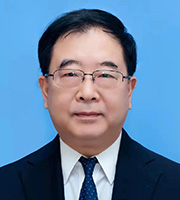 Yan Dongming, Professor
Yan Dongming, ProfessorDr. Yan has published more than 20 academic papers, won 3 scientific research achievement awards, presided over 2 scientific research projects, and published 3 monographs.
Research Area: Dr. Yan specializes in the diagnosis and surgical treatment of craniocerebral injuries, intracranial tumors, intraspinal tumors, and congenital diseases. He is especially skilled in the minimally invasive treatment of pituitary tumors and hydrocephalus with neuroendoscopy.
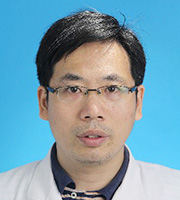 Guo Fuyou, Professor
Guo Fuyou, ProfessorResearch Area: Professor Guo specializes in microsurgical treatment of intracranial tumors, cerebrovascular diseases, spinal cord lesions, and Chiari malformations. He is especially good at microsurgical treatment of various skull base tumors and sellar region tumors, complex operations of complex Chiari malformation such as: iliac crest extraction + suboccipital decompression + screw-rod internal fixation, etc.
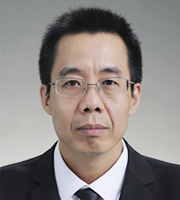 Wang Bo, Professor
Wang Bo, ProfessorDr Wang has been engaged in neurosurgery for 20 years. He participated in the editing of 1 monograph, and published 2 SCI-articles as the first author, A3 core articles, and more than 20 articles in national journals.
Research Area: Dr Wang specializes in the resection of intracranial tumors under the microscope and transsphenoidal pituitary tumor, especially accomplished in the microvascular decompression (MVD) of trigeminal neuralgia (TN) and hemifacial spasm, hydrocephalus shunt, and surgical treatment of severe cranial injury, hypertensive cerebral hemorrhage and moyamoya disease.
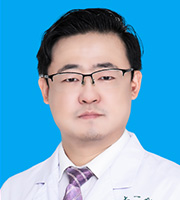 Zhang Fengjiang, Professor
Zhang Fengjiang, ProfessorAfter graduating from Shanghai Jiao Tong University School of Medicine, Dr. Zhang entered the First Affiliated Hospital of Zhengzhou University and has been engaged in neurosurgery, teaching, and research.
Research Area: Dr. Zhang specializes in various types of minimally invasive surgery for spinal cord diseases, cervical spondylosis, lumbar disc herniation, lumbar spinal stenosis, spondylolisthesis, and other spinal degenerative diseases; various types of spinal cord tumors; spinal cord trauma; cerebellar tonsillar hernia, atlantoaxial Craniocervical junction deformities such as vertebral dislocation and skull base depression.
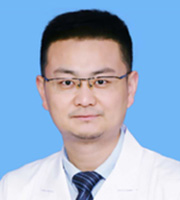 Zhang Zhe, Professor
Zhang Zhe, ProfessorResearch Area: Professor Zhang specializes in the diagnosis and treatment of various types of brain and spinal cord tumors and injuries, cerebrovascular diseases, trigeminal neuralgia, hemifacial spasm, hydrocephalus, and other neurosurgical diseases. He is skilled in the minimally invasive microsurgical treatment of spinal and spinal cord diseases (spinal and spinal cord tumors, craniocervical junction malformations, syringomyelia, atlantoaxial dislocation, cervical and lumbar spine diseases, spinal canal stenosis, spinal and spinal cord injuries, and various malformations, etc.).
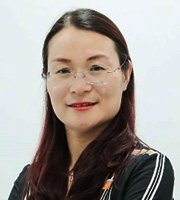
Research Area: Dr. Li specializes in the diagnosis and treatment of common gynecological diseases such as menstrual disorders, infertility, uterine fibroid, ovarian tumors, and various malignant tumors. She is skilled in the minimally invasive surgery such as hysteroscopy, laparoscopy, and vaginal surgery. She has rich experience in the treatment of uterine prolapse, vaginal wall prolapse, stress urinary incontinence, and reproductive tract malformations such as labia hypertrophy and adhesion.
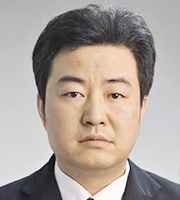 Xiao Xinguang, Professor
Xiao Xinguang, ProfessorResearch Area: Dr. Xiao specializes in imaging diagnosis and technical operation of ultrasound, CT, and magnetic resonance. He has rich experience and is skilled in the diagnosis of difficult diseases such as the central nervous system, digestive system, urogenital system, and gynecological diseases.
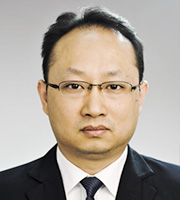 Kang Zhiqiang, Professor
Kang Zhiqiang, ProfessorDr. Kang specializes in the diagnosis and treatment of diabetes and its acute and chronic complications, thyroid disease, adrenal, pituitary, gonad and other endocrine diseases, and metabolic bone disease.
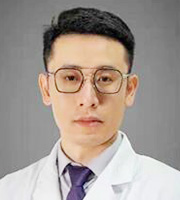
Dr. Li finished his postgraduate study under the tutelage of Professor Liu Yong, the founder of syringomyelia, and graduated from yasargil (Microscopic Neurosurgery) advanced training class of Xuanwu Hospital in 2014.
Research Area: Dr. Li specializes in the basic and clinical treatment of craniocervical junction brain and spinal cord diseases, including syringomyelia, subcerebellar tonsillar hernia malformation, atlantoaxial dislocation, and adult TCS (Tethered Cord Syndrome). He has conducted in-depth research and clinical discussion and practice, especially in the field of minimally invasive treatment of syringomyelia after trauma and inflammation.
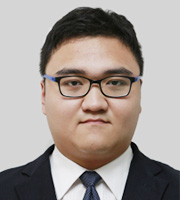 Liang Aming, Professor
Liang Aming, ProfessorResearch Area: Dr. Liang specializes in the minimally invasive stereotactic treatment of hypertensive cerebral hemorrhage and brain stem hemorrhage, and targeted biopsy of complicated brain diseases. He is skilled in the application of navigation, stereotactic minimally invasive resection of intracranial tumors, and accumulates rich experience in the surgical treatment of Parkinson's disease.
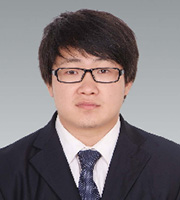 Wang Junyong, Professor
Wang Junyong, ProfessorDr. Wang graduated from the Urology Department of the First Affiliated Hospital of China Medical University.
Research Area: Dr. Wang specializes in the diagnosis and comprehensive treatment of prostate cancer, kidney cancer, bladder cancer, neurogenic bladder, and accumulates rich experience in the minimally invasive treatment of urinary stones.
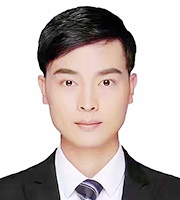 Yang Jichao, Professor
Yang Jichao, ProfessorResearch Area: Dr. Yang specializes in the diagnosis, treatment, and rehabilitation of different types of syringomyelia, tethered cord syndrome and cerebrospinal fluid dynamics, including syringomyelia, Chiari malformation, tear-cord syndrome, neuropathic pain, nerve repair, and degenerative diseases (such as cervical spondylosis, lumbar disease).